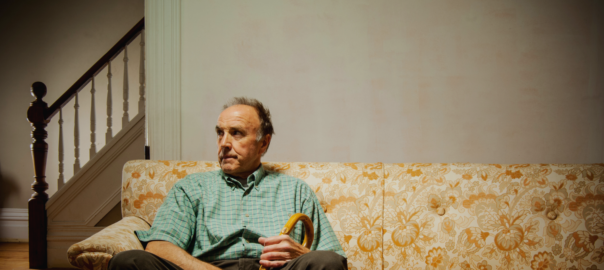The world is becoming increasingly aware of the importance of mental health awareness, but while most focus on its impact on the younger generation and working class, not a lot pays attention to senior citizens’ cognitive and emotional state. Your elderly loved ones can struggle with mental and emotional afflictions for various reasons, including loneliness, grief, major changes in one’s lifestyle, and other pressures of getting older.
Cognitive and Emotional Decline in Aging People
Several mental conditions can affect the elderly in greater numbers than younger people, and in most cases, they can have a major impact on their overall quality of life. Elderly people are often in more need of a stable and joyful life to retain their energy and stay productive, and it is upon us to ensure that this is not taken away from them too soon or because of our neglect to provide them with the appropriate care.
What to Do to Improve Mental Health in Seniors
Tip #1: Keep the Mind Active by Playing Games with Them
The first thing to address when caring for your elderly parent with cognitive and emotional decline is to keep their mind active, as this helps them stay alert. You can engage in a number of activities with them or let them play games on their own, like crossword puzzles, chess, or card games.
Try to ensure that you check with them if they want to play a particular game, or better yet, involve them in deciding on the activity you will do together. This way, keep them in charge of their own activity, boosting their self-esteem.
Tip #2: Never Cut them Off from Social Interaction
Social connection is essential for good mental health for the elderly, and cutting them off from others can hit them hard. Instead, try to foster social connection with them, like a group of family and friends who visit them often and stay connected.
If they don’t have anyone visiting them, you can try to set them up with a meeting at a nearby senior center. When interacting with them, talk to them about their life, interests, and family to keep them engaged in the things that matter to them, as this can help immensely with their mental health.
Tip #3: Don’t Ignore their Emotional State
Despite being emotionally mature and in control, elderly people can suffer from emotional distress and display it in many ways. They may become reclusive, lose interest in their hobbies and usual activities, and may even express their distress through crying and anger.
While their emotions are valid, it is important to address them, as ignoring their emotional health is a major cause of stress. Be receptive to your parent’s emotions, and keep an open dialogue to help them cope with their feelings. Show them that you are willing to listen, and suggest different activities and ways to deal with the feelings they are experiencing.
Tip #4: Encourage Physical Activity
Elderly people can experience a number of changes in their physical health, especially when it comes to mobility limitations and pain. Studies have shown that moderate physical activity can help improve their mental health.
This does not have to mean exercise. You can encourage your parent to do some light exercise with you, like taking a walk during the day or gardening in their backyard. Light physical activity like this can help them burn the day’s stress and may even make them feel younger again.
Tip #5: Ensure Proper Sleep and Diet
Insufficient sleep and poor nutrition can both contribute to mental and emotional decline. Your elderly parent may require longer sleep hours or frequent naps to feel well-rested. If they are not too uncomfortable with it, try to encourage them to take naps in the morning and before bed at night.
A healthy diet is also essential, and helps with overall mental health as well. Make sure that they are eating a balanced diet and are not skipping meals. Once you are sure that their diet is satisfactory, it may be beneficial to have their vitamin and mineral levels checked with their doctor.
The Bottom Line: Protecting and Improving Your Senior Family’s Mental Health
When it comes to the care of your elderly loved ones, it is vital to not overlook their mental health, as it is just as important as their physical health. Address their mental health needs the same way you would address their physical health, and, if you notice any decline in their mental health, seek medical attention early rather than later.
Are You Looking for Shared Housing in Stanislaus County, CA?
Finding a comfortable living space is an expensive journey, but if you’re not ready to settle down into a home you can call your own or even an apartment, then it’s worth finding your temporary abode in rooms for rent.
Stayhaven Homes can give you a safe haven without breaking the bank with our shared housing services, so get in touch with us at 209-280-0776 and see how we can help you live in a community that strives to put an affordable roof above anyone’s head.

